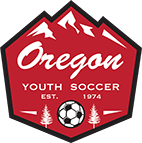This is in response to a very interesting article from Cinch Sports that was sent to me by a colleague and friend.:
That article can be read here.
As the governing body for youth soccer in Oregon, Oregon Youth Soccer Association (OYSA) is deeply invested in the long-term development of players, the integrity of clubs, and the sustainability of the game at all levels. The recent article raises important concerns about the limitations of nonprofit, volunteer-led models in managing competitive youth soccer clubs—a perspective we acknowledge and, in many respects, share. However, as a state association overseeing a wide spectrum of clubs, we believe the path forward must strike a balance between professionalism and community-rooted values.
There is no doubt that the competitive youth soccer landscape has grown more demanding. Families invest significant resources in pursuit of high-quality training, and the expectations for organizational standards, coaching expertise, and player development continue to rise. We agree that in many cases, the traditional model of governance—volunteer boards with limited tenures—can present challenges when it comes to consistency, long-term planning, and professional accountability.
OYSA supports efforts to elevate the standard of club operations, including encouraging clubs to adopt more professional management structures. Many of our most successful clubs have full-time executive directors or directors of coaching who ensure continuity and operational excellence. These roles allow for forward-thinking strategy, sustained community partnerships, and high standards in player development—key ingredients in building strong, reputable programs.
However, it’s important to recognize that Oregon’s soccer ecosystem is diverse. Not all clubs have the financial capacity to support full-time staff. In rural or smaller communities, volunteer boards may be the only viable governance option. Dismissing the nonprofit model altogether risks alienating these clubs and the many passionate individuals who sustain them. Rather than abandoning this structure, OYSA encourages clubs to adopt hybrid models—where key professional roles coexist with a supportive, informed board that upholds the club’s mission and values.
We also acknowledge the article’s concerns regarding conflicts of interest, particularly in parent-led boards. OYSA continuously emphasizes the importance of transparency, clear governance policies, and strong codes of conduct to minimize such risks. We provide resources and training to help clubs navigate these challenges and build governance models that are both ethical and effective.
Ultimately, the conversation must move beyond binary choices. The question is not whether clubs should be run by volunteers or professionals—but how we ensure clubs have the tools, structures, and leadership needed to deliver the best experience for players. Professionalization is not just about hiring staff—it’s about creating a culture of excellence, integrity, and service to young athletes.
OYSA remains committed to supporting clubs of all sizes and structures in achieving these goals. By fostering collaboration, offering strategic guidance, and investing in club development, we aim to help every club—whether volunteer-run or professionally managed—meet the evolving demands of youth soccer while staying true to the spirit of the game.


